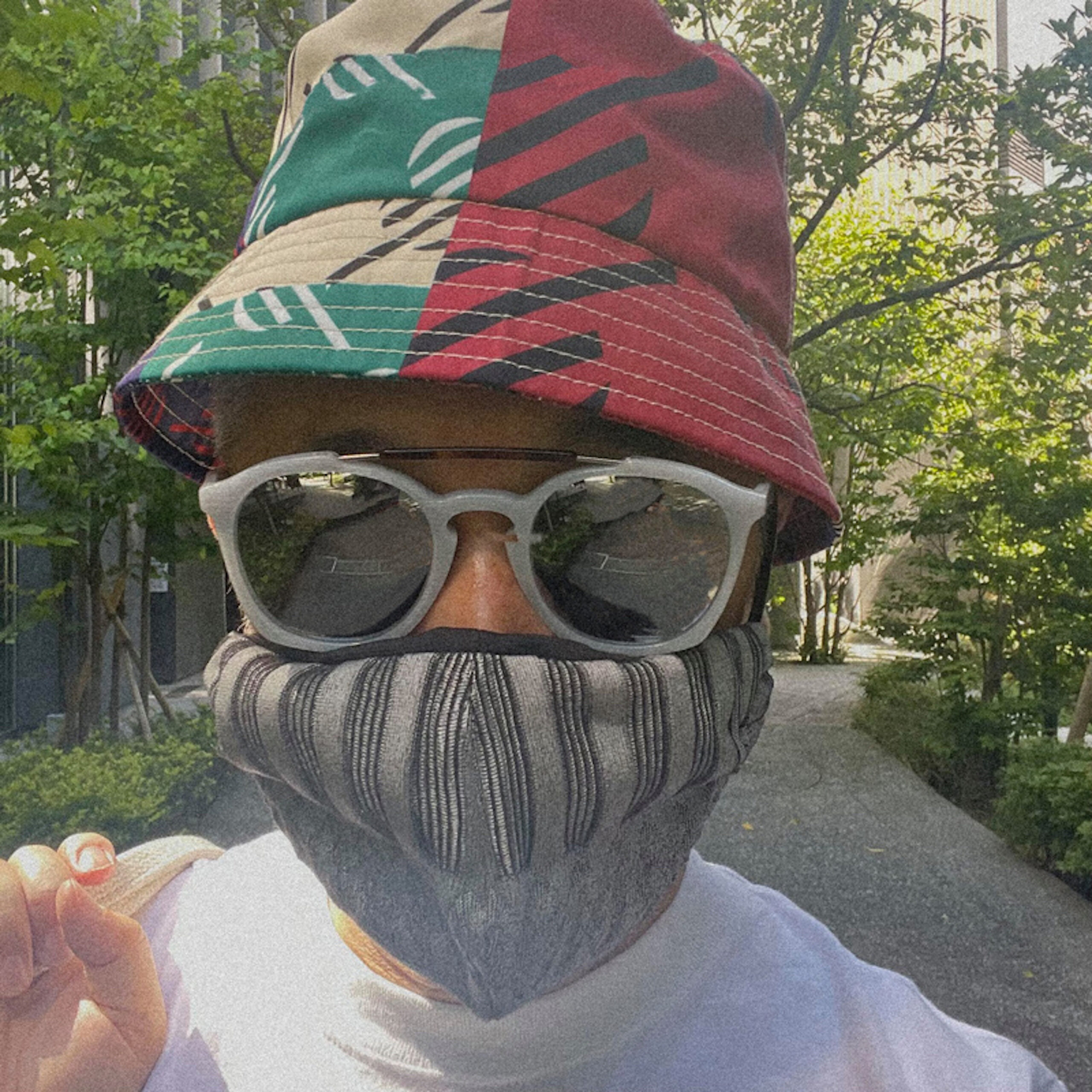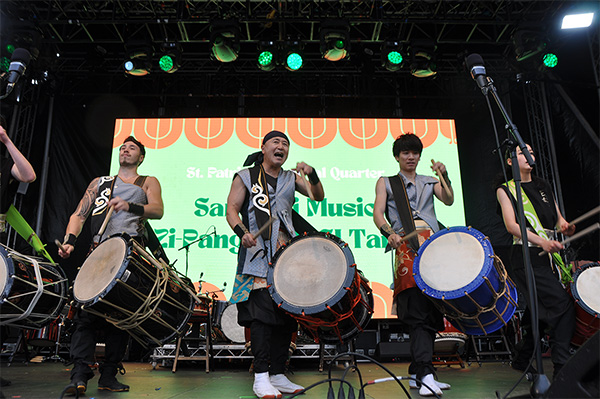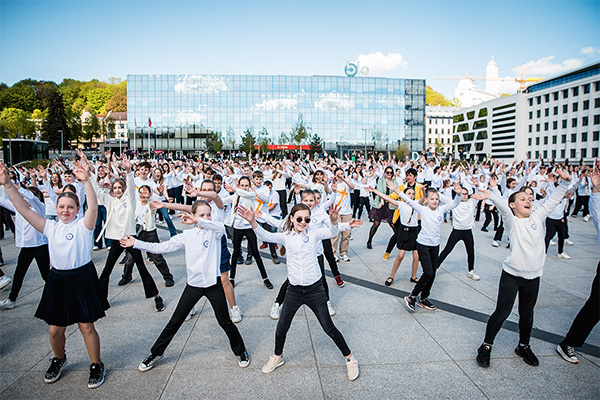Column
ColumnAn overwhelming musical experience created by human, android and AI
Keiichiro Shibuya’s android opera MIRROR, which took place at Théâtre du Châtelet, Paris for three days from Wednesday 21 June 2023, was a great success.
The Android Alter4-centred android opera MIRROR was composed of Shibuya playing piano and electronic sounds, a 47-piece orchestra appassionato, five monks chanting the Koya Mount Shomyo, and a video by Justine Emard, an artist who is an old friend of Shibuya. The high-density musical experience created by humans and AI is complex and magnificent. Theatre du Chatelet was filled with tension and discomfort from start to finish and even bewilderment, but by the end of the performance, it was filled with a strong sense of celebration.

Before the performance began, the moving lights added a touch of glamour to the heavy drapes and five tiers of seating, raising the audience’s expectations. The electronic sounds could be heard just a few minutes into the performance. The lights went dark and ‘MIRROR’, which is also the overture, started as it was. An electronic sound like a pulsating sound. The curtain rises and more than 50 human figures, including the Orchestra Appassionato, Shibuya and the monks, occupy the stage, which is flooded with dazzling light. Android Alter4 rises in the centre, glaring at all of them.
The metallic shine and deformity attracts the audience’s gaze. “Android is a Mirror” echoes the synthesized voice of Alter4, followed by the orchestra and five Shomyo, including Eizen Fujiwara. Justine Emard’s video joins in, demonstrating the multi-layered nature of the android opera, while Orta declares, “Let’s celebrate this new experience together”. As the overture ends, the sound of the Japanese cymbal immediately gives way to ‘Scary Beauty’. The song drew the audience in with its fluid orchestration and intricately played cacophony, and the song by Alter4 and the five monks’ Shomyo overlapped with it to create an overwhelming amount of information in the early part of the song. Excitement, tension and chaos could be seen in the audience at the strong alter4 presence and the spectacular experience of interweaving humans, robots and AI.

Following an MC in French, a recitative by Alter4 and the monks against a backdrop of computer graphics starting with 3D scanned point cloud data of Fujiwara’s temple landscape. In this performance, three recitative interludes are inserted between the pieces, which are performed by electronic sounds without orchestra, Alter4 and Shomyo; the AI, or GPT, interprets the text of the statement chanted over the electronic sounds and creates lyrics in response to them, which are then used as a response to the statement. improvised singing as if it were an obbligato. The three recitative parts improvised by the monk and the android are naturally different in each of the three performances, and the extreme contrast between “the monk singing the oldest music” and “the android interpreting it and singing it with artificial intelligence” is seen not only during the performance but also on TV, newspapers, radio and other local media. The third song, which followed, was performed last year with electronic music.
The third song to follow was an orchestral version of ‘BORDERLINE’, which was presented in electronic music last year. Next was ‘On Certainty’, an extract from Wittgenstein’s text. In this piece, Shibuya also left the stage to form a solo performance by Alter4 with orchestral accompaniment. While parts of Mahler’s songs with orchestral accompaniment, so to speak, continued to be repeated and varied, this piece, which ended with a sudden climax after a long tone sustained by Alter4, which is impossible for a human singer, parodically expressed the ‘end of Europe’ in a different aspect to the other pieces.

The performance was followed by a walking scene with monks chanting as they made their way around Alter4, then the dramatic ‘The Decay of the Angel’, which began with a powerful Shomyo by Hoshin Tani, followed by ‘Midnight Swan’, in which the monks wove in a spectacular performance using a bold sutra book and prayed for world peace. The performance reaches a peak for the first of many times when the audience prays for world peace, and the audience’s voltage rises.
After a development that left the audience breathless with the dramaturgy and volume of information in each song, Alter4 and Shomyo as tranquil interludes, followed by the final recitative by Shibuya’s Prophet 10; communication between a monk and an android, and “I Come from the Moon”, the soundtrack to last year’s short film Kaguya by Gucci, was performed in a multilayered orchestral version. Here, the girlish-sounding synthesized voice of Alter4’s chorus accentuated their neutral character, and in contrast to the monk’s voice, Alter4 appeared to be an incarnation that sang and danced violently, changing its form in response to the message.
The final song was ‘Lust’, a new song newly written for this performance. Alter4 sings “Affirmation of Desire” based on the Rishu Sutra, an important scripture of the Shingon Esoteric Buddhism, and the monk who chants the essence of the Rishu Sutra, the “17 poets”, finally circling around Alter4 again while chanting, which gradually speeds down as if in slow motion but never stops as if representing reincarnation, the music and the screaming high notes of Alter4 come together to culminate in a dazzling light. Powerful applause and cheers were coming from the audience even as the curtains were coming down.
After the curtain call, Shibuya and Alter4 played and sang ‘Scary Beauty’ as they looked at each other. The second curtain call lasted longer, as the audience, left somewhat bewildered by the spectacularly informative experience of the main performance, seemed to have regained their hearts and minds.
Shibuya’s deep integration of technology into his creations even before the performance, as if to shake the boundaries between life and non-life, attracted a great deal of attention from local media interested in AI and creation in recent years. Shibuya’s activities are yet to be seen.
in Japanese.








